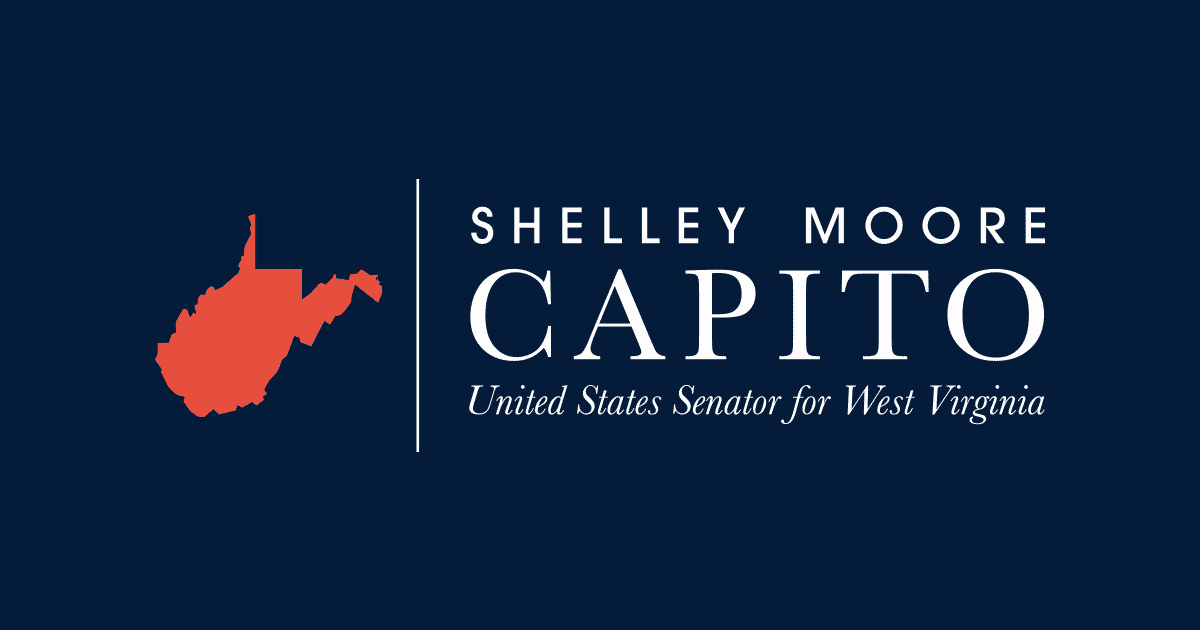Source: United States Senator for West Virginia Shelley Moore Capito
WASHINGTON, D.C. – U.S. Senator Shelley Moore Capito (R-W.Va.), Ranking Member of the Senate Environment and Public Works (EPW) Committee, and Senate Republican Leader Mitch McConnell (R-Ky.), today sent a letter to governors across the country reaffirming their commitment to ensuring the proper implementation of the bipartisan Infrastructure Investment and Jobs Act (IIJA). The letter follows a December 16, 2021 memorandum issued by the Federal Highway Administration (FHWA) that outlined several policies contradicting those negotiated and agreed to in the IIJA.
“We were disappointed to read the Federal Highway Administration (FHWA) memorandum entitled ‘Policy on Using Bipartisan Infrastructure Law Resources to Build a Better America’ issued on December 16, 2021. Unfortunately, the FHWA memorandum attempts to implement a wish list of policies not reflected in the IIJA. These policies, such as discouraging projects that increase highway capacity and prioritizing projects that advance non-motorized transportation options, differ from the provisions negotiated and agreed to in the law,” the members wrote.
“Congress never envisioned the IIJA to be a ‘unique opportunity’ for FHWA to ‘evolve the century-old relationship with State departments of transportation’ as the FHWA memorandum suggests. Nothing in the IIJA provides FHWA with the authority to dictate how states should use their federal formula funding, nor prioritizes public transit or bike paths over new roads and bridges. The FHWA memorandum is an internal document, has no effect of law, and states should treat it as such,” the members continued.
View the full letter here and below:
Dear Governors,
Thank you for all your input and support that helped secure the passage of the bipartisan Infrastructure Investment and Jobs Act (IIJA), P.L. 117-58. The longstanding partnership between the federal government and states is key to addressing our nation’s significant infrastructure challenges. During the development of the IIJA, we intended and ensured that its provisions would continue to support this important partnership.
A central component of this partnership is the flexibility provided to states through federal policies and programs that allow for funding to be utilized in a manner that effectively addresses each state’s unique needs. To that end, the IIJA distributes 90 percent of the federal-aid highway funding to states via formula and largely retains the existing core formula program structure. The law does not include provisions that restrict or discourage certain types of projects, including projects that add highway capacity. The IIJA allows for more efficient delivery of all surface transportation projects through various reforms to the environmental review and permitting processes, including the codification of One Federal Decision. The law addresses infrastructure issues in a manner that reflects bipartisan input and consensus and avoids burdensome, prescriptive requirements.
We were disappointed to read the Federal Highway Administration (FHWA) memorandum entitled “Policy on Using Bipartisan Infrastructure Law Resources to Build a Better America” issued on December 16, 2021. Unfortunately, the FHWA memorandum attempts to implement a wish list of policies not reflected in the IIJA. These policies, such as discouraging projects that increase highway capacity and prioritizing projects that advance non-motorized transportation options, differ from the provisions negotiated and agreed to in the law.
Congress never envisioned the IIJA to be a “unique opportunity” for FHWA to “evolve the century-old relationship with State departments of transportation” as the FHWA memorandum suggests. Nothing in the IIJA provides FHWA with the authority to dictate how states should use their federal formula funding, nor prioritizes public transit or bike paths over new roads and bridges. The FHWA memorandum is an internal document, has no effect of law, and states should treat it as such.
You understand firsthand how carrying out projects that are responsive to the unique infrastructure needs of your state will spur economic growth, create jobs, and improve the quality of life for all of your residents. We look forward to working collaboratively with you to ensure the proper implementation of the IIJA that reflects congressional intent and continues our federal-state partnership.
Sincerely,
# # #
